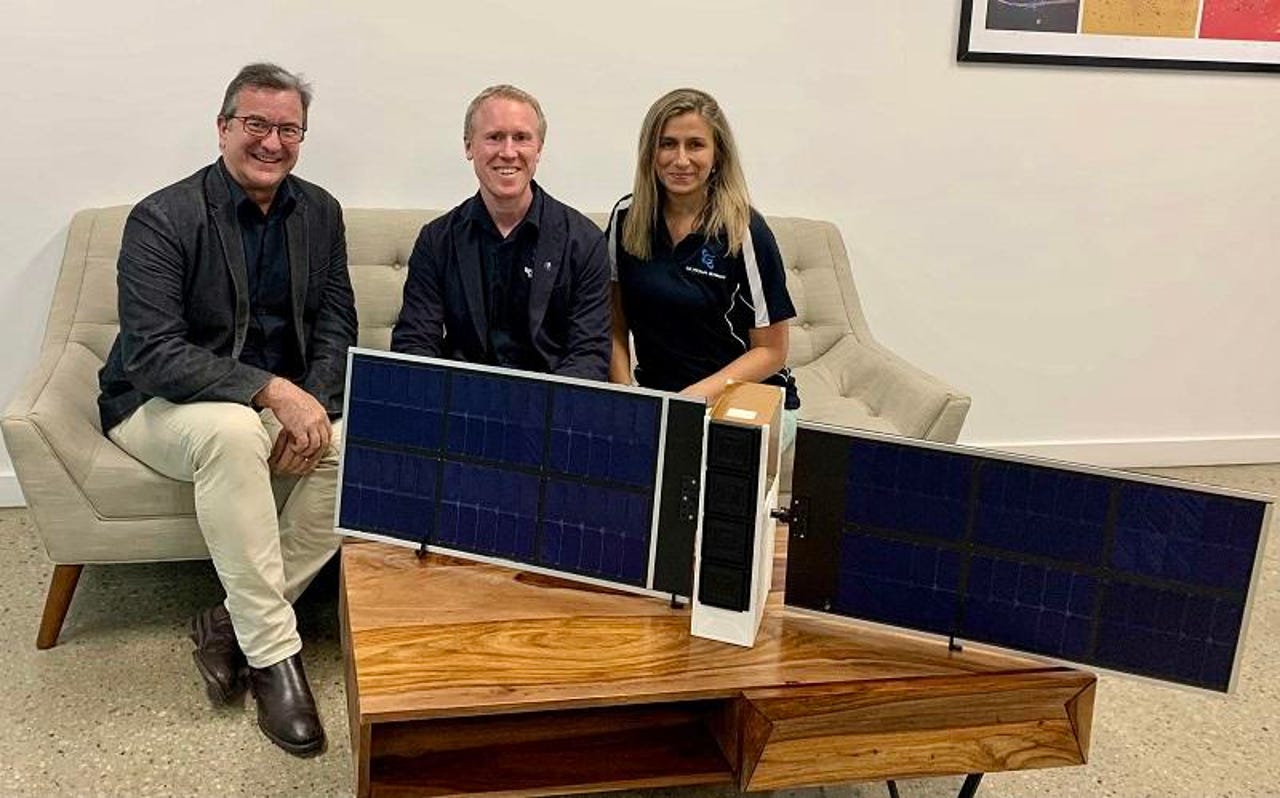Gilmour Space and Fleet Space to lift small satellites into orbit in 2023


Queensland rocket maker Gilmour Space Technologies and South Australian nanosatellite manufacturer Fleet Space Technologies have joined forces to launch half a dozen of small satellites to orbit in 2023.
Under the signed contract, six Fleet Space Centauri nanosatellites will be launched using Gilmore Space's Eris rockets.
"This launch is going to involve an Australian-built payload in an Australian-built satellite, on an Australian-built rocket," Fleet Space CEO Flavia Tata Nardini said.
"Today's announcement is the beginning of an ongoing launch service relationship as we work towards our planned constellation of 140 satellites," she added. "We are building a strong portfolio of launch service partners, and we are very excited to have Gilmour Space as one of them."
See also: 6 space missions to look forward to in 2021 (TechRepublic)
On Wednesday, the Australian Space Discovery Centre based in Adelaide's Lot Fourteen was also unveiled.
Stood up by the Australian Space Agency and Questacon, the centre will be a place for "hands-on interactive space exhibits and provide practical advice for those wanting to pursue a career in the growing space sector".
"[Space] is not just about astronauts and rockets. It's about floods, it's about bushfires, it's about understanding how we manage our own environment. It's about the technology, which is going to create high value jobs whether here in South Australia or elsewhere around the country," Prime Minister Scott Morrison said to mark the opening of the centre.
"But all of that begins with discovery and our own personal discovery and we have young people in there discovering right now. And I can't think of anything more exciting than completely opening up and exciting the mind of a young Australian."
On-site at the Space Discovery Centre is also a mission control centre that will be used by local startups to control satellites and space missions.
"We are establishing infrastructure for critical space flight and engineering capability. Companies and researchers at university will be able to utilise the Mission Control Centre for pre-flight testing, launch support, as well as communications during flight," head of Australian Space Agency Enrico Palermo said.
An inquiry into developing Australia's space industry is currently underway. Chaired by Nationals MP Barnaby Joyce, the committee is examining the opportunities of Australia's space industry and what is required to support the country's domestic and international space-related activities. This includes the development of space technology and equipment, commercialisation of R&D, and future workforce requirements.
One of the key concerns that have been raised as part of the inquiry so far is about Australia's talent pool in the space sector. Local and international space companies stressed that local talent is necessary to ensure the country's space industry will succeed.
Another theme of the inquiry has been focusing on the need for Australia to establish satellite sovereignty so it relies less on international capabilities.
Related Coverage
- CSIRO's Parkes radio telescope to support Intuitive Machines' commercial moon landing
- Industry wants to make space more accessible to grow Australia's talent pool
- Australian Space Agency rejects it is ignoring ethics and being 'gung-ho' about the moon
- Australia's space sector wants policies introduced to ensure satellite sovereignty
- South Australian government commits AU$6.5m to launch its own satellite in 2022
- Defence kicks off first stage of Australian space domain awareness capability
- Virgin Galactic's COO tapped as new Australian Space Agency boss
- Team Australia: CSIRO's multimillion-dollar post-coronavirus plan
- SpaceX could serve Australian external islands with satellite broadband by 2022
- Canberra reaffirms commitment to Australia's future in space